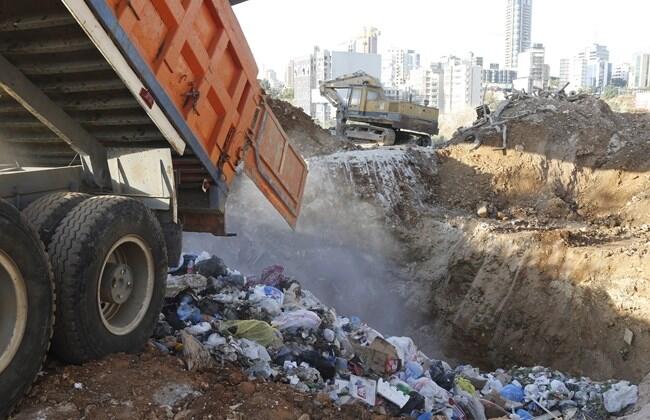It made for a distressing sight to see Lebanon’s natural beauty spoiled so crudely. But in the absence of any judicial precedent to prosecute illegal dumping offenders, the country should expect such activity to go unpunished, experts say. In fact, in this new era of ad hoc waste management, the problem of illegal and haphazard dumping on a municipal or industrial level may grow even worse. A contrite mayor of Baabdat, Nabil Salhab, admitted to The Daily Star that the truck dumping in the valley was operating in the service of his municipality. “Definitely, it was the wrong solution – it was a hasty decision. But people approached us about it, and we saw they were right, so we stopped and found a different way,” Salhab said. But he accused the state of putting his municipality in the position of having to dispose of trash in such a clearly deficient way. “They brought us here. They asked us to prepare overnight. Of course we had nothing immediately available,” he said. On July 16, the Environment Ministry announced that effective from the next day Beirut and Mount Lebanon municipalities would be responsible for disposing of their own waste after it closed the region’s primary landfill in Naameh. In the north, trucks dumped loads of garbage on the international highway near Chekka Saturday night, and when the mayor of nearby Kefraya transferred the rubbish to a municipal dump, he discovered it contained medical waste. “There were IV lines, contaminated with blood,” Mayor Youssef Samrout said. “This is something that you’ll start seeing increasingly in the next couple of days,” said Ali Darwish of the Green Line Association, an environmental NGO. Indiscriminate disposal is sure to alarm municipalities, but those seeking recourse through the courts will find that judicial precedent is not on their side, according to Raphael Sfeir, an environmental lawyer. The law criminalizes unlicensed dumping, but there has been no successful case against the practice in 20 years. When a truck dumps illegally, both the driver and the contracting party are culpable for the crime. “If you are implementing environmental law, the consequences are imprisonment and fines,” Sfeir said. The country’s illegal dumping laws were borne out of a 1994 scandal that revived memories of unregulated toxic waste disposal during the country’s 1975-90 Civil War. When barrels of toxic waste were discovered at Shnanir quarry in Kesrouan, the public learned that still unaccounted for were roughly 10,000 other barrels from a $22 million deal signed in 1987 by the Lebanese Forces to dispose Italy’s toxins in Lebanon. Those laws have not led to any prosecutions since Shnanir, Sfeir said. He added that municipal officials, who have standing to sue in the Kefraya medical waste incident, are more likely to settle outside of court. “The municipality has the capacity to sue. Are they willing? I used to be the mayor of Jbeil. It’s not easy,” Sfeir said. Samrout said he already had a lawsuit against the company he thought was responsible for the disposal. He discovered from the contents that the trash had come from Rabieh, Mansourieh and Antelias. But if government officials neglect to see dumping cases to a satisfactory end, can concerned people sue, instead? Finding standing under the current law is a major hurdle. “The frustration is that if you are not directly injured or influenced by dumping, you have no right to sue the company responsible. So NGOs do not have the capacity,” Sfeir said. In Baabdat, Salhab would not say where the municipality is now disposing its waste other than to assure The Daily Star, “It is more sanitary.” The Daily Star











